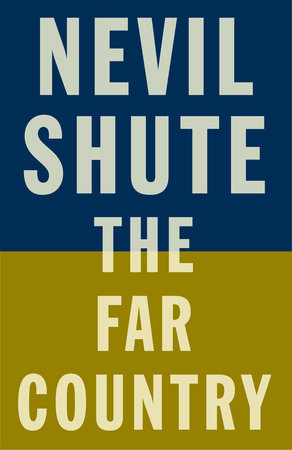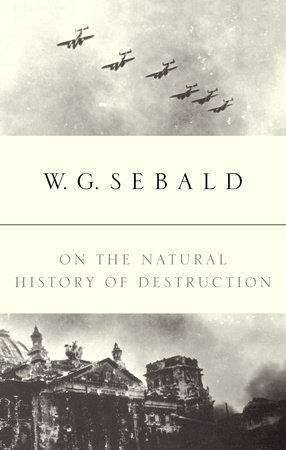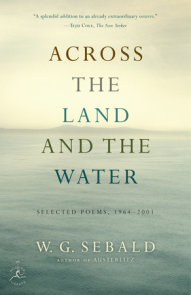

On the Natural History of Destruction
By W.G. Sebald
Translated by Anthea Bell
By W.G. Sebald
Translated by Anthea Bell
By W.G. Sebald
By W.G. Sebald
By W. G. Sebald
Read by Simon Vance
Translated by Anthea Bell
By W. G. Sebald
Read by Simon Vance
Translated by Anthea Bell

-
$21.00
Feb 17, 2004 | ISBN 9780375756573
-
Feb 11, 2003 | ISBN 9781588362766
-
Feb 06, 2018 | ISBN 9780525631453
270 Minutes
Buy the Audiobook Download:
YOU MAY ALSO LIKE

Pied Piper

The Far Country

Ordeal

Marazan

The Avengers

The Breaking Wave

Mysterious Aviator

Beyond the Black Stump

Tom Jones
Praise
“Most writers, even good ones, write of what can be written. . . . The very greatest write of what cannot be written. . . . I think of Akhmatova and Primo Levi, for example, and of W. G. Sebald.”
—The New York Times
“[Sebald] is writing about what he regards as a disquieting refusal to face facts—not only about what was done to the nation, but by implication, by the nation. . . . No better future for humankind is possible if we do less than look upon the crimes of our past, and their catastrophic results, with ‘a steadfast gaze.’”
—The Boston Sunday Globe
“This may well be the last of Sebald’s writing we’ll ever have, so how amazing—and fitting—it is that it seems, in a fashion as uncanny as his prose and perceptions could often be, to close the circle of the ruminations that preoccupied his writing life.”
—The Washington Post
“Sebald approaches his subject with sensitivity, yet avoids neither descriptions of horrible carnage nor criticism of writers too preoccupied with absolving themselves of blame to faithfully portray a destroyed Germany. The result is a balanced explication of devastation and denial, and a beautiful coda for Sebald.”
—Booklist
“The secret of Sebald’s appeal is that he saw himself in what now seems almost an old-fashioned way as a voice of conscience, someone who remembers injustice, who speaks for those who can no longer speak.”
—The New York Review of Books
21 Books You’ve Been Meaning to Read
Just for joining you’ll get personalized recommendations on your dashboard daily and features only for members.
Find Out More Join Now Sign In
















